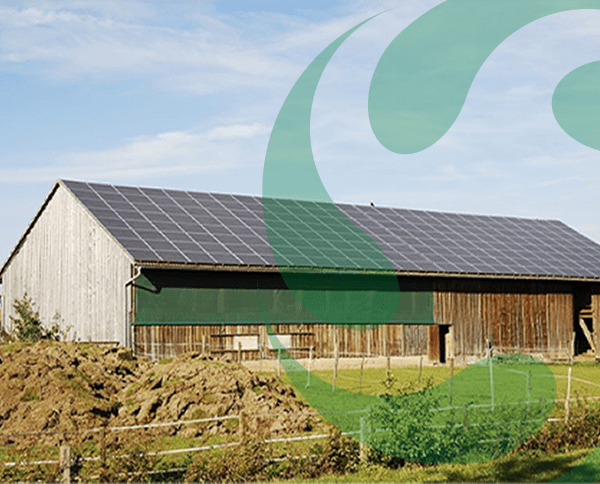
Solar Energy for Agricultural Fields
Sustainable agriculture is an issue that needs to be emphasized for the continuation of ecological life and continuity of access to healthy food. In addition to maintaining farm profitability, it is also important to minimize environmental damage. Of course, while doing all of this, energy needs to be sustainable, that is, uninterrupted.
To prevent such interruptions, fuel types such as kerosene, diesel oil, and propane are used in generators used in agricultural fields. Although these systems come into play when the mains power is cut, they provide energy continuity, but they have some disadvantages:
- Transportation of fuel to a difficult area and the extra cost of this,
- The sound and smoke of the generators disturb the farm animals,
- Fuel costs and the resulting waste damages the chemistry of the soil,
- Diesel generators require maintenance and mechanical systems sometimes fail and need spare parts and so on.
At this point, it becomes important to examine the question of how renewable energies can be used for sustainability in rural and agricultural areas. As INTEC Energy Solutions, we will focus on the advantages and application types of solar energy systems.
Advantages of Solar Energy Systems for Agriculture
Many countries, especially in Europe, are concentrating their energy regulations on obtaining electricity from renewable energy sources. Solar energy offers an advantageous alternative for agricultural production. A well-designed solar system with modern systems can provide the energy needed. Moreover, energy storage systems can be provided to continue uninterruptedly during night hours or when the amount of light is not sufficient. On the other hand, the components of a solar power system have lower maintenance costs compared to other fossil fuel generators. There are two types of solar energy systems that can be used in agricultural fields. Systems that convert solar energy into direct current (solar photovoltaic systems) and convert solar energy into heat. INTEC Energy Solutions specializes in solar photovoltaic systems.
The advantages of solar energy applications are as follows;
- Low operating costs without fuel usage,
- Relatively easy to install and maintain,
- Producing clean energy by preventing greenhouse gas emissions,
- They do not pollute the soil or produce smoke or chemical particles that may adversely affect the health of livestock,
- The high-decibel sound that can create stress effects on livestock
Electricity Generation with Photovoltaic Technology
Electricity can be produced with photovoltaic panels, it can be used as a water pump in the fields as well as stored in battery systems. Stored electrical can be used for electric fences, field or building lighting operate electrical equipment for livestock. It is also advantageous for the following applications.
- Feed and product grinder,
- Electric egg collection and processing equipment,
- Product cooling,
- Animal feeding and spraying engines, controls,
- Battery charging,
- On-farm security CCTV system.
As a result, photovoltaic power is a technology that has proven energy efficiency in homes and factories. There is no reason why this technology should not be used in rural areas, especially in agriculture. Solar panel prices are also becoming more affordable compared to extending the electricity grid or using diesel generators in remote locations. Therefore, it can be applied easily in all agricultural systems regardless of small or large scale and the amortization period is fast.
Copyright © 2023 Wszelkie prawa zastrzeżone
